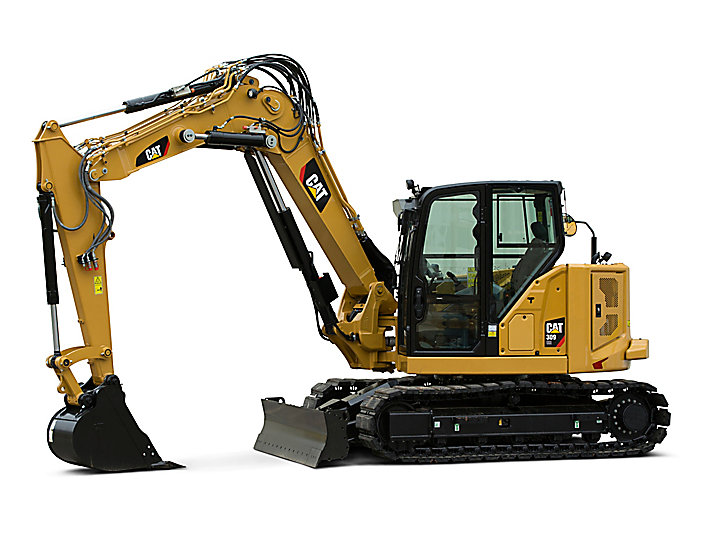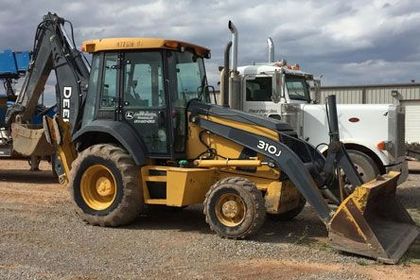Superior rentals squeeze tools: applications explained for pipeline operators
Wiki Article
A Comprehensive Overview to the Different Kinds of Oil Field Equipment and Pipeline Equipment Available
The oil and gas market relies heavily on specialized devices for effective removal and transport. Various kinds of equipment, from drilling rigs to storage space containers, play essential duties in this intricate process. Each piece of devices offers distinctive features that add to general functional success. Comprehending these elements is necessary for any person associated with the industry. As the sector progresses, so also do the modern technologies that sustain it. What improvements are on the horizon?
Drilling Rigs: The Backbone of Oil Expedition
Drilling rigs act as the crucial machinery in the domain name of oil expedition, making it possible for firms to gain access to hydrocarbon reserves hidden deep under the Planet's surface. These rigs are available in various types, consisting of land rigs, offshore rigs, and mobile units, each designed to operate in details atmospheres. Outfitted with innovative innovation, piercing rigs can permeate geological formations with accuracy, making certain effective source extraction. The architectural stability and operational abilities of these rigs are vital, as they need to hold up against extreme conditions and substantial pressures. The selection of an exploration gear affects the general task cost and timeline, making it an essential factor to consider for oil business seeking to optimize their expedition efforts and make the most of efficiency in their operations.Pumps: Necessary for Liquid Movement
In the oil extraction procedure, the function of pumps is considerable, assisting in the motion of liquids throughout numerous phases of production. Pumps are important for transporting unrefined oil, water, and various other fluids from underground storage tanks to the surface area and after that through pipelines to refineries. They can be found in various types, including centrifugal, favorable variation, and submersible pumps, each offering details purposes based on the fluid features and functional demands. Centrifugal pumps are generally used for their effectiveness in high-flow applications, while favorable variation pumps master managing thick fluids. The option of pump impacts overall performance, operational security, and maintenance prices. Appropriate choice and maintenance of pumps are crucial for maximizing production and reducing downtime in oil field operations.Valves: Controlling Flow and Pressure

Shutoffs play an essential duty in taking care of the flow and pressure of fluids within oil fields and pipelines. Different kinds of valves serve unique applications, each made to satisfy specific functions basic for effective procedure - Superior Rentals fusion machines. Recognizing the attributes and uses these shutoffs is vital for optimizing system performance and safety
Kinds of Valves
Crucial parts in oil field procedures, shutoffs play an important role in regulating the circulation and stress of liquids within pipes and tools. Various kinds of shutoffs are utilized to fulfill the varied requirements of oil and gas manufacturing. Usual kinds include entrance shutoffs, which offer a straight-line flow and minimal pressure decline; world shutoffs, understood for their strangling abilities; and ball shutoffs, recognized for their fast on/off control. Additionally, check shutoffs stop heartburn, while butterfly valves supply a lightweight service for controling flow. Each valve kind is made with specific materials and configurations to endure the harsh problems commonly found in oil fields, guaranteeing reliability and performance in procedures. Comprehending these kinds is critical for efficient system management.Valve Applications and Features
While different kinds of valves serve distinct functions, their key applications rotate around regulating circulation and pressure within oil and gas systems. Valves such as entrance, world, and round shutoffs manage liquid activity, making certain peak performance and safety. Gate shutoffs are generally utilized for on/off control, giving very little circulation resistance. Globe shutoffs, on the other hand, offer precise circulation law, making them ideal for strangling applications. Ball shutoffs are preferred for their quick operation and tight sealing abilities. On top of that, stress alleviation shutoffs are crucial for preventing system overpressure, securing equipment stability. Generally, the appropriate selection and application of shutoffs enhance operational effectiveness, ensuring the trustworthy transport of oil and gas via pipelines and handling centers.Compressors: Enhancing Gas Transportation
Compressors play a vital function in Superior Rentals reviews the efficient transport of gas, ensuring that it relocates smoothly via pipelines over fars away. These tools raise the pressure of gas, enabling it to overcome rubbing and elevation adjustments within the pipeline system. In addition, compressors promote the harmonizing of supply and demand, suiting changes in intake and manufacturing prices. Different kinds of compressors are utilized in the sector, consisting of centrifugal, reciprocating, and rotating screw compressors, each offering distinctive benefits based upon the functional demands. Routine maintenance of these compressors is necessary to optimize effectiveness and decrease downtime, eventually adding to a reputable gas transport network. Their crucial function emphasizes the significance of compressors in the overall oil and gas framework.Storage Tanks: Safe and Efficient Liquid Management
Reliable transportation of natural gas depends on various supporting systems, one of which is the appropriate monitoring of storage containers. These storage tanks play a vital role in safely having fluids, ensuring that operational performance is maintained while minimizing environmental risks. Constructed from sturdy products, they are made to hold up against high pressures and destructive aspects. Correctly sized and strategically situated, storage containers assist in the smooth flow of all-natural gas and other fluids, protecting against traffic jams in supply chains. Routine upkeep and monitoring are essential to identify leakages or structural issues, advertising safety and compliance with governing standards. Inevitably, the reliable monitoring of tank is important for the total stability and integrity of the oil and gas market's fluid handling systems.
Pipeline Systems: Infrastructure for Transport
Pipeline systems offer as the backbone of the oil and gas industry, assisting in the reliable transportation of hydrocarbons over vast distances. These systems include numerous components, including pipelines, shutoffs, pumps, and compressors, all carefully made to ensure smooth flow. The products used in pipeline building and construction, frequently steel or high-density polyethylene, are selected for resilience and resistance to corrosion. Pipeline networks can cover throughout land and water, linking manufacturing sites to refineries and circulation. In addition, advanced technology enables real-time monitoring of flow prices and pressure degrees, improving operational efficiency. The strategic placement of these pipes lessens environmental impact while making best use of resource access, consequently playing an essential function in meeting energy demands globally.Safety Equipment: Making Sure Worker and Environmental Security
The procedure of pipeline systems, while crucial for power transportation, likewise provides substantial safety difficulties for workers and the atmosphere. Safety devices plays a substantial role in minimizing these risks. Individual safety equipment (PPE) such as headgears, gloves, and non-slip shoes safeguards employees from physical risks. Additionally, gas detection systems check for leaks, guaranteeing that unsafe compounds do not posture a hazard to workers or the bordering environment. Emergency shutdown systems are critical for quickly halting procedures throughout a dilemma, stopping possible catastrophes. Spill control materials, including absorbents and barriers, are essential for minimizing ecological impact. Generally, investing in all-inclusive safety and security tools is critical for keeping operational integrity and securing both workers and the setting in the oil and gas sector.
Often Asked Questions
Just how Do I Select the Right Oil Field Equipment for My Job?
Choosing the right oil field tools includes reviewing task specs, spending plan constraints, and functional needs. Think about aspects such as devices integrity, compatibility with existing systems, and the provider's track record to ensure peak efficiency and safety.What Are the Maintenance Demands for Oil Field Equipment?
Maintenance requirements for oil area tools consist of normal assessments, lubrication, and timely repair work. Operators needs to additionally adhere to supplier standards, screen efficiency metrics, and assurance compliance with safety and security regulations to boost durability and efficiency.
Exactly How Can I Make Sure Conformity With Environmental Laws?
To guarantee conformity with ecological laws, business must carry out regular audits, carry out finest methods, invest in training, preserve correct paperwork, and stay upgraded on regulation (Superior Rentals Contact). Partnership with ecological companies can likewise enhance adherence to guidelinesWhat Is the Typical Lifespan of Pipeline Equipment?
The ordinary life expectancy of pipeline devices typically varies from 20 to 50 years, relying on variables such as worldly top quality, ecological problems, and maintenance techniques. Routine inspections can substantially affect long life and functional performance.Exactly how Do I Securely Transport Oil Field Equipment to Remote Locations?
Transporting oil area tools to remote places calls for careful preparation, consisting of course assessment, safeguarding permits, using ideal cars, and guaranteeing security protocols are complied with. Correct training and communication among crews are necessary for effective transport.Report this wiki page